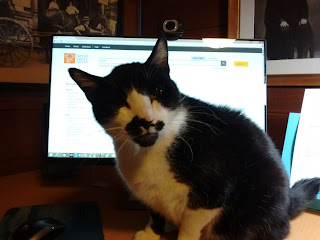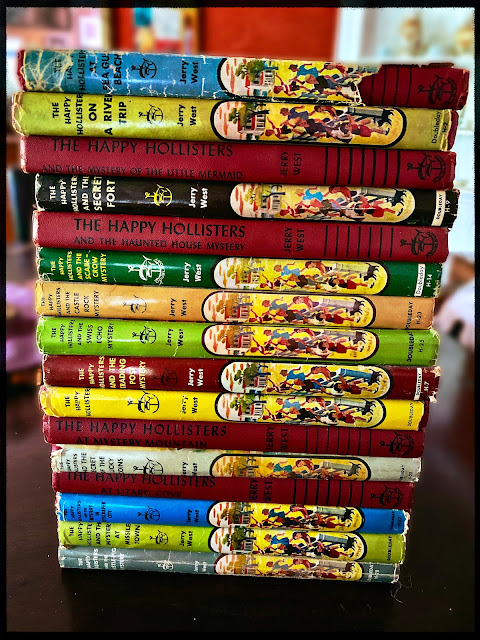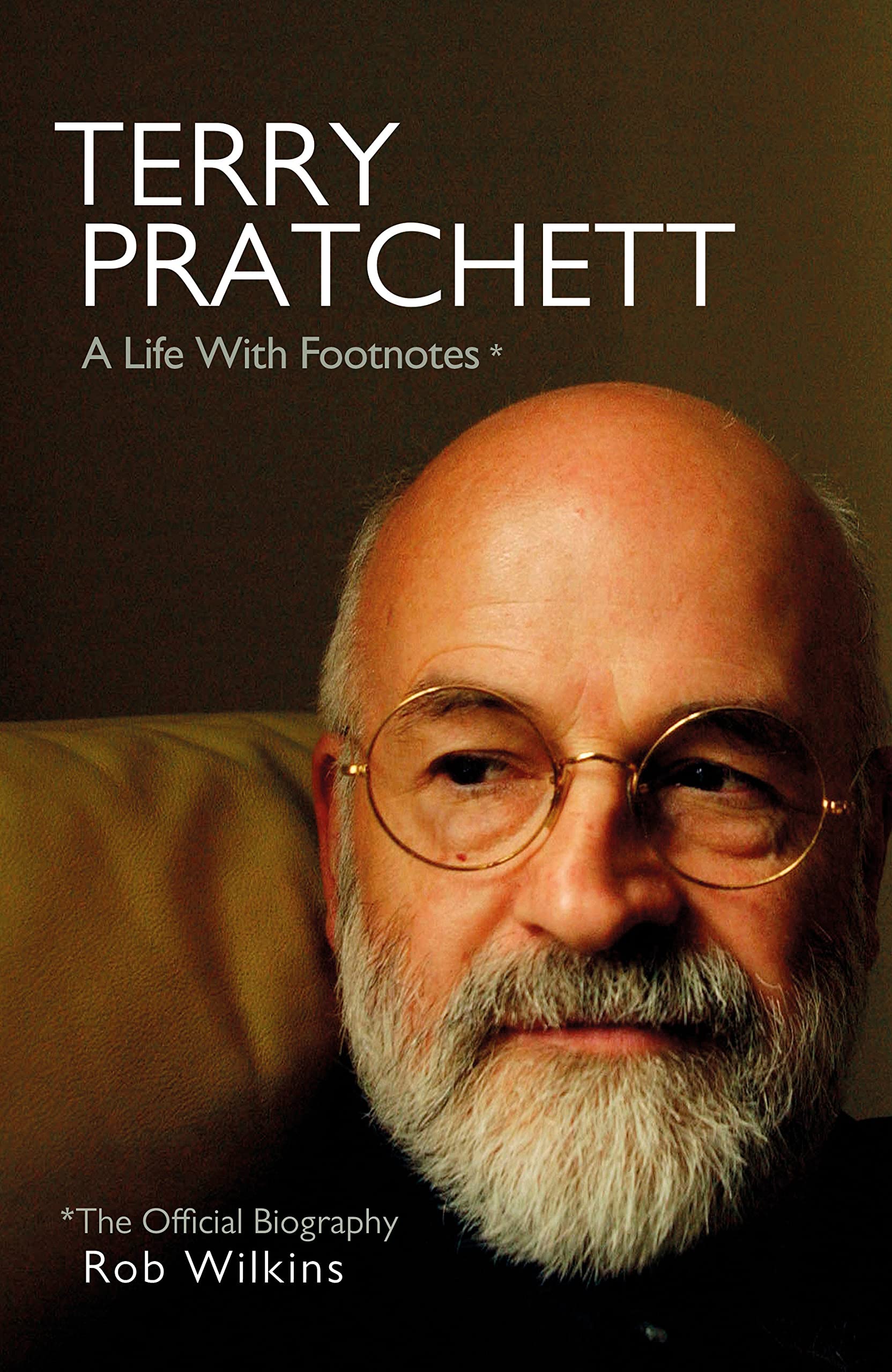We've all sat in on those meetings. Someone sent by administration to explain things to us. Motivate us. Well-dressed. Well-groomed. A whiff (or a wave) of cologne. A voice that never stops. When interrupted, a look of pained disappointment (I learned to call it the LPD) and on with the monologue. No content, just bullet points (All of the following taken from meetings I somehow survived.):
- Try test phases.
- Make your mistakes small.
- Small projects equal small mistakes.
- Always manage the managers.
- Build rapport.
- We must create change through awareness on a variety of issues.
- Community, community, community.
- Work towards core competencies.
- Train people in listening skills. (And he certainly was training us.)
- Innovation is mandatory in order to thrive.
- Manage (or was it massage?) the managers.
- New ideas refresh old roots.
- A willow cannot grow beyond what the stump can bear.
- What is developed can be proprietary in a way that adaptations cannot.
- Always ask, what will it look like if we do this?
All about as informative, substantive, and practical as fog. And then come the word salads:
This is all really simple, people. Mutually verifiable evidence is critical when trying to settle disagreements. Gravity can be mutually verified. We can define what we mean by it. We can design tests to prove it exists. Others can do the same tests and get the same results without the need to "believe" in it first. Or water. Water is H2O. We can narrowly define water so that only H2O is water. We can design experiments to tests for water. We can design tests to show that water is made up two hydrogen molecules and one oxygen molecule. We can verify something is water by doing experiments that produce the same results. Anyone who doubts that water is H2O can do the experiments and if they find something different can present their findings for scrutiny. If they can show that they did the exact same test and got contradictory results, we could then say that the assertion that water is H2O is not mutually verifiable. So mutually verifiable evidence is the only way to solve problems or disagreements. (By now we were all doodling away.)
And the one that nearly started a riot:
It's not that complicated. You women must have more conversations with men to educate them. You must have the courage to speak out, speak often, but always gently, lovingly, to change the men around you. Men can't hear what women don't say. Women who don't complain are part of the problem. Not complaining sends mixed messages to men. Complaining lets men know a woman's barriers and how to relate to her. But always gently, lovingly, respectfully.
Finally, the meeting is over. And everyone bitches about it for a few days. And then the memo comes from on high, "We expect a draft of your department's long-range plan to implement the proposals given in the meeting." To which we all answer, mentally, "WHAT PROPOSALS? IT WAS ALL BULLS***T!"
"The Dunning-Kruger effect is a type of cognitive bias in which people believe they are smarter and more capable than they are. Essentially, low-ability people do not possess the skills needed to recognize their own incompetence. The combination of poor self-awareness and low cognitive ability leads them to overestimate their capabilities." (LINK)
In other words, they know they know everything, and will impart their "knowledge" to you at any opportunity, even if they have to create it, and no evidence will ever convince them that they're wrong. A lot of extremely wealthy people are like this because of the basic theory
wealth = expertise and knowledge.
HA!
I'll never stop laughing over that one.
But they're at every level and walk of life, especially any profession which gives them a podium and a mike, or puts them in charge of anything. Which is why Douglas Adams had the Golgafrinchans divest themselves of a useless third of their population (beginning with middle management) by sending them out in Ark Fleet Ship B, and God knows we've all thought about it...
Also, all dictators, from Qin Shihuangdi to Mao Zedong, Lenin to Putin, Robespierre to Rousseau were and are absolutely convinced that they know everything about how things work. (My favorite is still Rousseau writing the first hugely popular book on child education - Emile - despite having put everyone of his children in an orphanage. Write what you know...)
And, of course, all conspiracy theorists and cult members - or did I just repeat myself?
Did I mention politicians?Meanwhile, the same people who are IMPOSSIBLE in meetings, family dinners, and daily life can be hilarious (or not) in books and on film:
Inspector Clouseau (Peter Sellers, Pink Panther franchise) - we all know Inspector Clouseau, egotistical, incompetent, clumsy, who somehow always manages to evade assassins and find the culprit. He drives everyone around him crazy, sometimes literally so (I empathize with Herbert Lom's Chief Inspector). But it's funny...
Foggy Dewhurst (Brian Wilde, Last of the Summer Wine, the longest running sit-com in history) - Foggy is a former soldier who liked to boast of his military exploits in the WW2 jungles of Burma, even though he'd been a corporal sign-writer who was stationed in Wales. He's an expert on everything (he thinks he's mended a toaster and decides that means he can mend anything) and is determined to meddle in every problem he sees. He loves to give his occupation as "trained killer" and is shocked when he's occasionally arrested for it. I find him hilarious.
Florence Foster Jenkins (Florence Foster Jenkins starring Meryl Streep) - Now there's a woman who in real life was tone deaf and no one ever had the guts to tell her...
Michael Scott (Steve Carrell, The Office) - One of the reasons I never watched more than a couple of episodes. I didn't find him funny at all, because I've been too many meetings.
The Manager in Dilbert - 'Nuff said.
Owl in Winnie the Pooh - kind of cute in a children's book.
Uncle Andrew in The Magician's Nephew (C. S. Lewis) - who really gets in over his head, and it's such fun to watch.
Sheldon Cooper in The Big Bang Theory - his genius in physics makes him think he's a genius in everything. He's not.
Paul in Midnight in Paris - Pseudo-intellectual who dazzles (some) women with his knowledge of French art and culture, despite being wrong most of the time.
Hap Shaughnessy on The Red Green Show - lay-about at the Lodge who claims to have known everyone, done everything, been everywhere, including guitarist for the Rolling Stones.






.jpg)















%20websize.jpg)

.png)